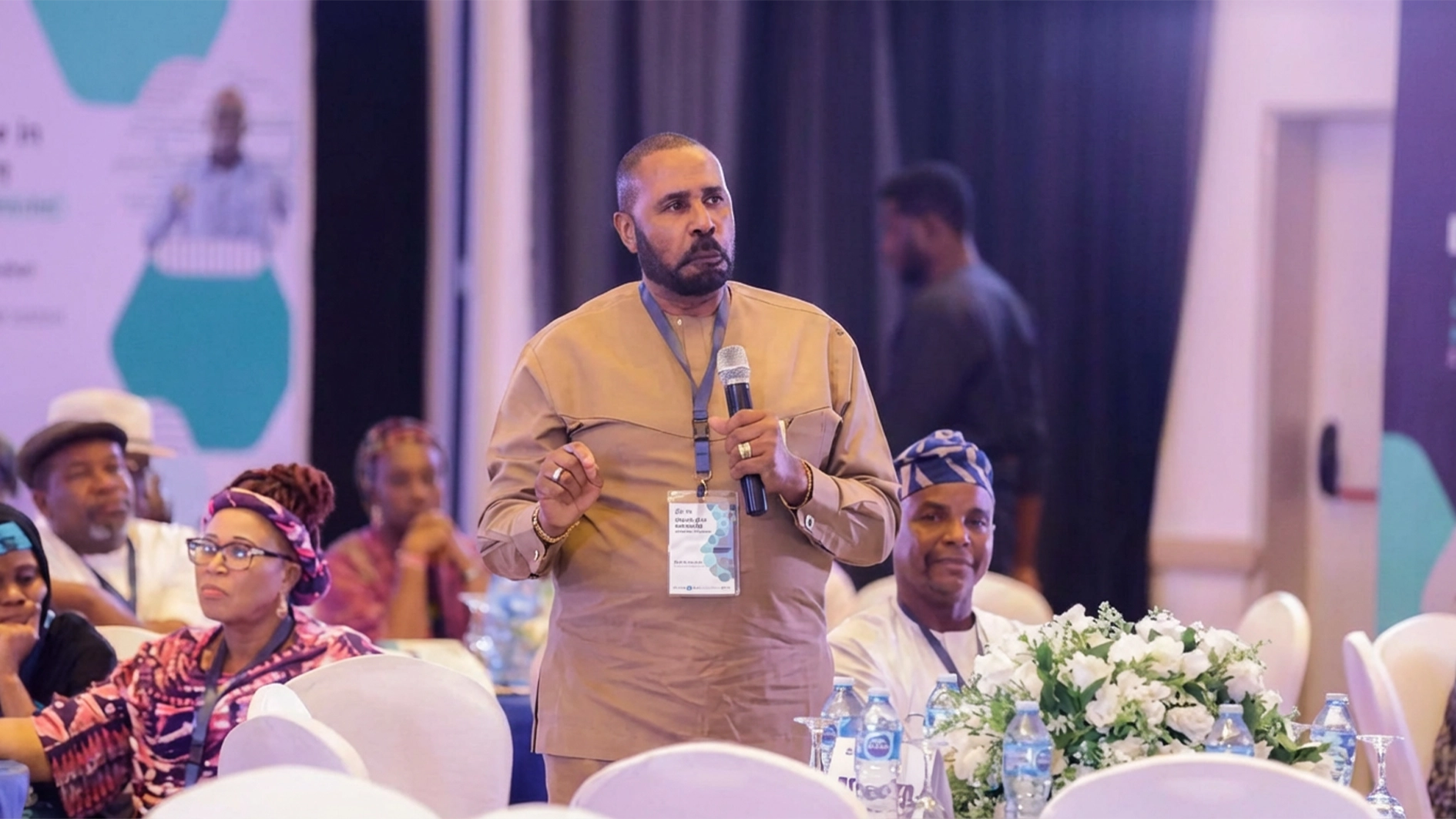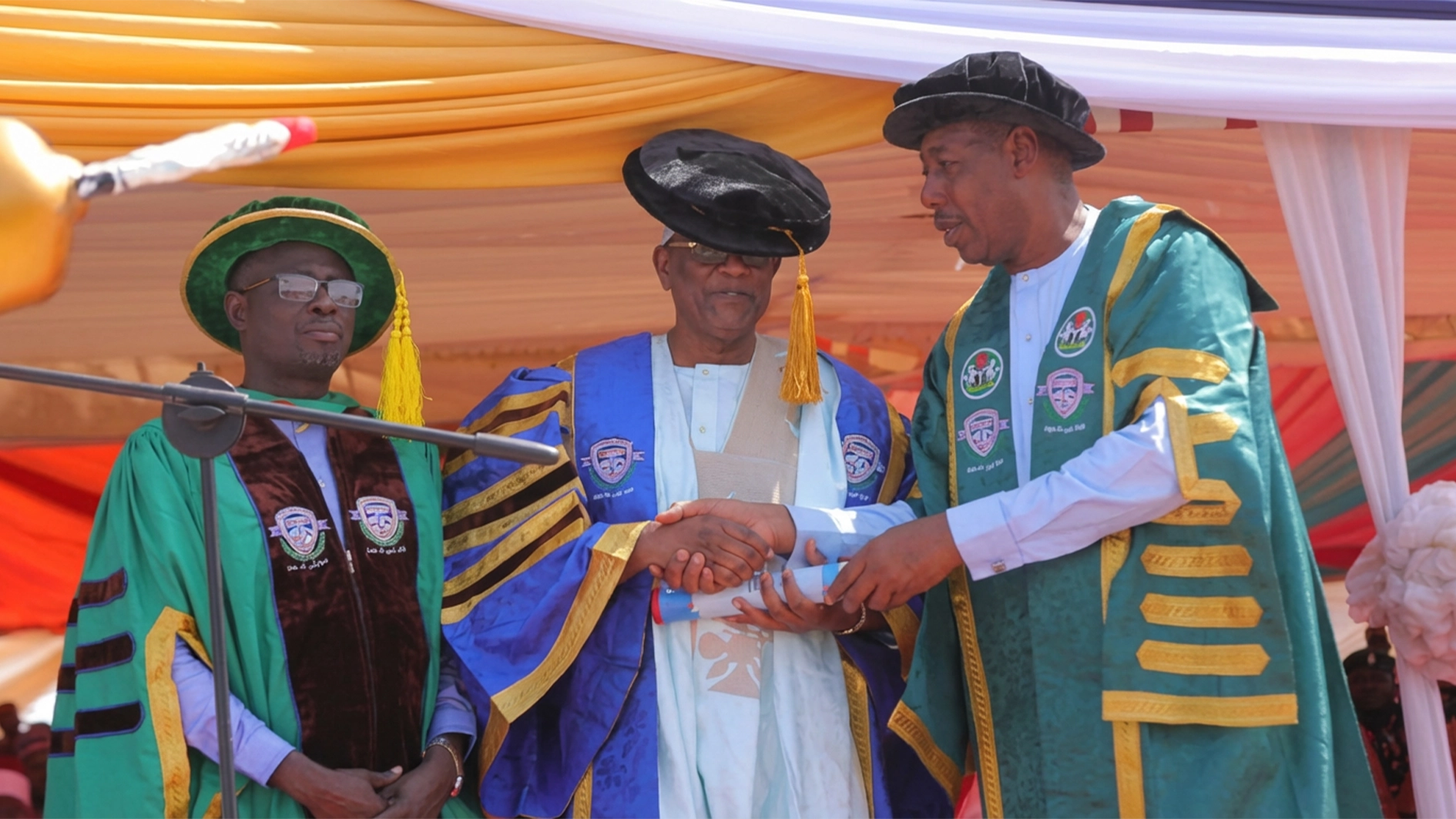
Hundreds of students are graduating with first-class degrees in Nigerian universities, both private and public, in recent times than decades ago. IYABO LAWAL examines the situation and writes that of more importance to the nation will be how these high-flying students can turn their academic excellence into skills for personal and national development.
He did it. Standing tall on the podium regaled in his graduation gown and beaming with a smile that can make the world pause for a reflection, Akindele Daniel Davies was a testament of ingenuity and brilliance. As his grade was announced and presented with his first degree certificate, the world seemed like a speck beneath his feet.
Recently, the young man made a first class – a perfect score of 5.0 – at the University of Lagos (UNILAG); that score is a record-breaking one in the history of the institution. Between 2010 and 2020, UNILAG has produced at least 1000 students with first class degrees.
Davies was by no means the only university student who had graduated with a first class. In recent times though, the number of students graduating with a first class has skyrocketed.
A first class degree is earned when an undergraduate scores Cumulative Grade Point Average (CGPA) of 4.50 and above upon graduation.
In the past, there was much ado about graduating with a first class with some accusing private universities of churning such class of degree with ease and on the other hand, praising public universities for being ‘disciplined’ in the way it is churning out graduates with first class degrees. But in recent times, things have changed as public universities are also said to have joined the train of producing high number of first class graduates.
For the 2019-2020 academic session, UNILAG had 281 first class graduates, University of Ibadan (UI) 241; University of Ilorin (UNILORIN) 180; Federal University of Technology, Akure (FUTA), 206; University of Nigeria, Nsukka (UNN) 174; Obafemi Awolowo University (OAU) Ife, 124; University of Benin (UNIBEN) 282; and Bayero University Kano (BUK) 105, among others.
The picture of awards of first class degrees was more colourful in private universities in the same period. Covenant University, Ota, had 206; Igbinedion University, 350; Afe Babalola University, Ado Ekiti (ABUAD), 125; Lead City University, Ibadan, 107; Bells University, Ota, 81; Babcock 82; Bowen University, Iwo, 60; Landmark University, 59; and Benson Idahosa University, 37.
On the so-called proliferation of first class degrees, especially in Nigeria’s private universities, Dr. Idris Oyemitan of the Department of Chemical and Physical Sciences, at Walter Sisulu University, South Africa, said: “It is very absurd that students that failed to obtain anything close to 250 in their Unified Tertiary Matriculation Examination (UTME) scores or Post-UTME examination, are now being awarded first class degrees. I want to criticise these questionable awards from four main angles: the Senior Secondary Certificate Examination grades of these ‘glorified’ first class graduates cannot match those in public universities.
“Almost all of them scored below average or minimum scores that would not have qualified them to gain admission into leading (public) universities. Most of these private universities cannot compete with public ones in areas of qualified lecturers as they mostly rely on visiting, part-time and sometimes, ‘grossly incompetent’ academic staff to churn out these graduates.”
Oyemitan further alleged that most private universities could not boast of standard laboratories, qualified and competent technical staff.
The South African-based scholar urged the National Universities Commission (NUC) and other regulatory agencies to look into the rising number of students graduating with first class.
Is this just a peculiar Nigerian situation? Is standard of education in the country’s private and public universities so bad that it becomes easy for the institutions to produce an increasing number of graduates with first class degrees?
In the United Kingdom, the proportion of students graduating with top degrees has soared in the past five years, with a quarter of last year’s candidates leaving university with a first class, a dramatic increase from just 17 per cent in 2016. Almost three quarter of students achieved a 2:1 or higher, compared with just two-thirds five years ago. In the early 1990s, the proportion of students graduating with a first class was far lower, at around eight per cent.
This increasing army of first class graduates have prompted many UK universities to introduce additional character reports alongside degree classifications, giving a more detailed breakdown of students’ academic performance and extra-curricula awards and activities.
However, Prof. Sola Fajana, dispelled fears about the rise of students with first class degrees as a fluke or a “cash-and-carry” phenomenon.
The professor said: “The Nigerian University System (NUS) is regulated by NUC through instruments such as Benchmark Minimum Academic Standards, adding that If a first class graduate is pronounced in the NUS, one can be assured that the graduate is, indeed, a first class material.
The former vice chancellor noted that such increase is reflective of advancement in knowledge and access to information through the Internet.
Fajana said: “There is an increasing number of serious-minded students who deploy information communication technology to achieve excellent results. Furthermore, the total number of graduates produced has been increasing over time, especially since the 1980s. Consequently, the proportional increase in the number of first class students probably reflects the increase in the number of graduates produced compared with the figures of the 1960s up to the 1970s,” Fajana added.
From the UK example, it seems that all over the world – not just in Nigeria, that awards of first class degrees are increasing.
Those who saw the rise as cheering news affirmed that the situation is not as a result of unnecessary grade inflation because the NUC plays a credible and efficient regulatory role in ensuring standards in federal, state and private universities.
Talking about the influence of the Internet in making academic resource more available to students, Prof. Olusola Oyewole, noted that information communication technology (ICT), has contributed immensely to the rise of first class graduates.
“To that extent, where students are serious with their studies, it is easier to make a first class today than it was in the past. The methods of assessment are also more liberal today than they were in the past. With this, it is very easy for serious-minded students to score higher grades,” Oyewole said.
Besides, he added that there is improvement in learning systems, which are becoming more learner-focused than teacher-centred; giving room for conscientious students to explore and research widely on their own any subject beyond the four walls of the classroom.
But in spite of assurances from scholars like Oyewole and Fajana, some still feel that it is almost impossible for universities, public ones in particular, to produce large numbers of first class graduates in the face of dwindling academic commitments, poor facilities like hostels, classrooms, laboratories and other needed resources, as well as amenities to make learning a delight.
They also argued that given frequent and long periods of strikes by Academic Staff Union of Universities (ASUU) and other unions, it is incredible to imagine that students will find it easier to graduate with such high scores; more so, because a reason usually given by ASUU for going on strike is lack of teaching and learning facilities in the universities.
A lecturer at the Department of Chemistry, University of Abuja, Dr Ben Ugwoke, averred that Nigerian universities awarded first class to make their products “competitive.” Similarly, the Dean of Post Graduate Studies, BUK, Prof. Umaru Pate, described the trend as worrisome.
Pate alleged that some Nigerian universities deliberately awarded first class degrees in order to be seen as serious institutions where people could come in and graduate with very good grades. He said the situation was particularly so because the job market had become very stiff and highly competitive.
Others that are convinced that Nigerian universities are awarding first class to some underserving students, said Nigeria would have been more positively impacted if first class graduates being churned out by the various institutions are really that good.
The NUC even made the issue part of its main agenda at one of its retreats. At the end of the day, a statement by the commission summed up its stance on the matter. According to the agency’s spokesperson, Ibrahim Yakassai, “the reality of the situation is that only a few people who are exceptionally brilliant should get first class and they are in the minority anywhere in any school.
Citing a 2019 report, a public analyst, Nkiru Peters, noted that of the 127,023 students that completed their studies in the 2018/2019 academic session in 36 Nigerian universities, 2, 288 graduated with first class. According to her, this is a mere 1.8 per cent of the total graduates produced in 2019 and certainly not in the majority.
She said: “The University of Lagos, for instance, recorded 271 first class out of 6,992 students representing 3.9 per cent of the total graduates produced for the year; the University of Ibadan had 241 out of 7,330 representing 3.3 per cent; Usmanu Danfodiyo University, Sokoto, had 113 first class out of 10,994 students, representing 1.03 per cent, while University of Port Harcourt recorded 106 first class degrees from 4,771 students it graduated last year, representing 2.22 per cent. Among the private universities, a total of 215 students of Covenant University were awarded first class degrees out of 1,580 students that graduated, that is 13.6 per cent of graduates for 2019.
Peters added: “ABUAD produced 99 first class out of its 979 graduates representing 10.1 per cent of graduates produced for the year, while Babcock University had 62 first class graduates out of its 1,926 graduates, representing 3.2 per cent of graduates produced for the year. The statistics showed that students that got first class in both public and private universities are in the minority. So, how did we arrive at the bogus conclusion that first class degrees are probably becoming two or 10 a penny?
A professor of Geography at Ahmadu Bello University (ABU), Zaria, Mohammed Adamu, said all that is required to get a first class in most Nigerian universities is for students to score 70 per cent or more in their courses and any student that makes this a goal can easily achieve it, especially in private universities where there are less distractions and better learning facilities than what obtains in the poorly funded Nigerian public universities.
He said: “Those who give tips on how to get a first class will tell you that getting this class of degree starts from the very beginning in class. They also aver that the decision to get a first class is mainly taken by the student. Granted having a conducive environment, quality faculty, good library, and other factors come to play; they are mere addendum to an individual student’s decision to graduate with a first class degree.
“First class students are seldom found in bars, clubs or parties. Most often, they are too serious minded. Some of them may try to maintain a balanced lifestyle but they are rarely at the extreme. These are not sacrifices that many students would want to make,” Adamu added.






